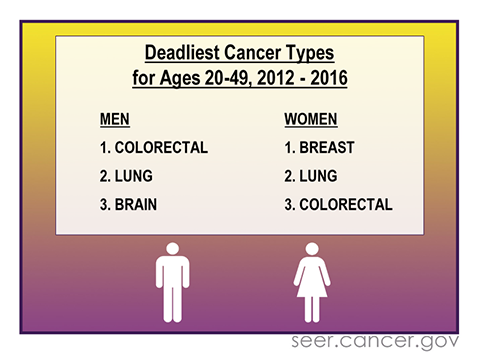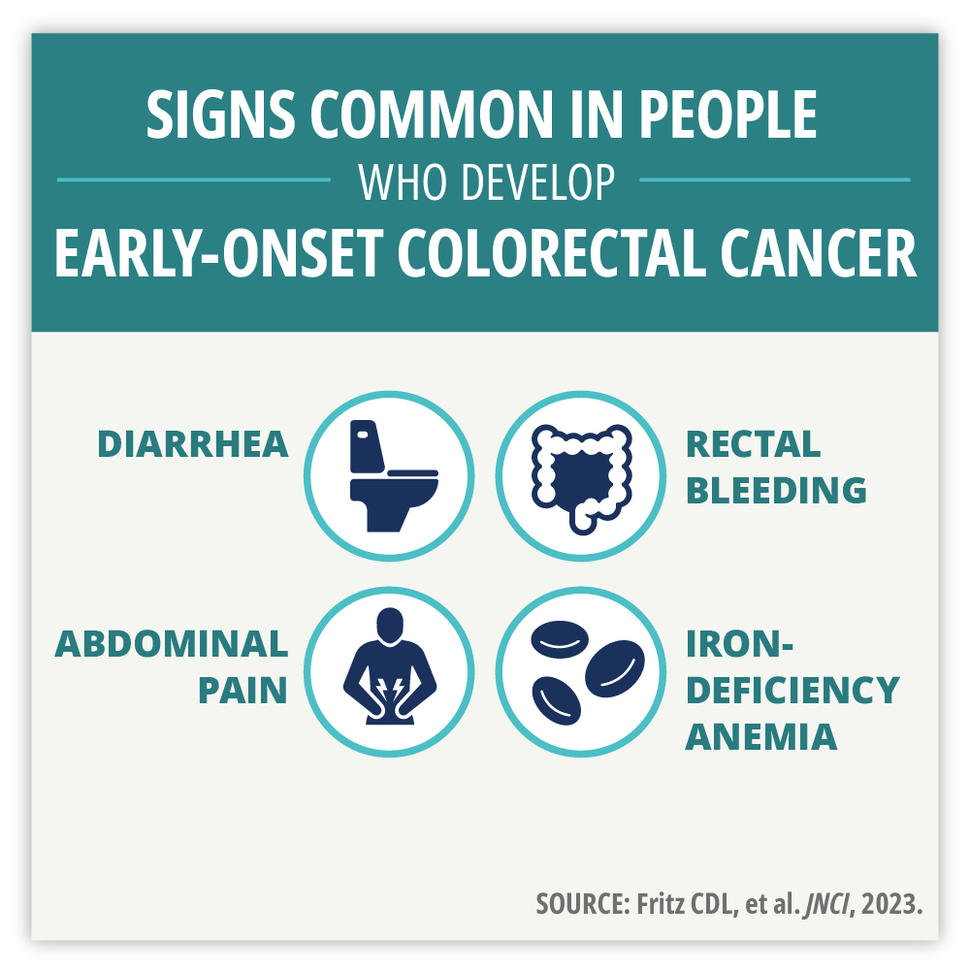Early-Onset Cancers in Younger Generations
 |
"Why is this happening, and why are we seeing this?"
"They [patients] say, 'Why? I'm in great shape, I'm exercising'. I have no explanation for them. We really just don't know."
"You hear stories of young women who get radiation but were unaware they would become infertile. Or someone undergoes rectal cancer surgery, and no one has talked to them about the possibility of erectile dysfunction. Or no one has a clue how to talk to their 12-year-old about their new diagnosis of cancer."
"All of these things are really important. We've been trying hard to add that layer of treatment into how we manage colorectal cancer."
"Time is absolutely a factor. [Once people start experiencing symptoms], it usually has advanced, and may have a very different prognosis."
Shady Ashamalia, surgical oncologist, Sunnybrook Hospital, Toronto
Changes in the gut microbiome may be influencing the increasing rates of colorectal cancer in adults under 50. Credit: Journal of Translational Medicine |
A recent editorial in the journal BMJ Oncology warned, "The epidemiological landscape of cancer incidence is changing", following a global study that found "early-onset" cancers -- diagnosed in individuals under fifty years of age had increased by 79 percent and correspondingly the number of deaths ensuing from those cancers increased over three decades by 28 percent.
The startling and little understood reality is that colorectal, breast, esophageal, gastric and pancreatic cancers are on the increase in people as young as 20 to 25 years in age. Colorectal cancer has moved from the fourth leading cancer killer in men and women under 50 in decades earlier in the United States to now become the leading cause of cancer death in younger men, and the second leading [after breast cancer] in under-50 women in 2021, relates an American Cancer Society report.
Between 1983 and 2012, rates of cancer among the under-50s increased significantly, at 13 cancer sites according to a Canadian analysis: colon, rectum, bone, breast, connective and soft tissue, uterus, gallbladder, kidney, esophagus, pancreas, testes and thyroid. In the 20-to-39-age group, the most dramatic increase of cancer is seen in colon and rectal cancers. The rates increased annually among 20- to 24-year olds by four to six percent.
 |
Among 30-to-39-year olds significant increases were noted as well for pancreatic cancer, and in those 25 to 29 gallbladder cancer; patterns seen in 'stark contrast' to trends in older age groups where increased incidents were more minimal. Doctors were reporting far more young adults with colorectal cancer and fewer among those over age 50, even before the study results were known. And no one in the medical/research community understands why this is.
Theories, however abound and they linger on diets high in processed, fatty and sugary foods which tend to be low in fruit, vegetable, fish and fibre intake. Processed meats are suspect, as well as the use of antibiotics capable of altering the gut microbiome to cause chronic inflammation in the bowel. Other suspected agents are moderate to heavy alcohol consumption, sedentary lifestyles and women avoiding motherhood leading to more cycles of circulating estrogen levels capable of increasing risk of breast cancer; and lastly, excess body weight.
In those under age 50, obesity too is linked to at least eight of the cancers. Close family members with cancer increases risk, along with some hereditary disorders. And when all those possibilities have been dealt with, doctors are still seeing younger cancer patients whose profiles don't mesh with any of the risk categories. While cancer remains a disease of ageing -- nearly nine out of ten new diagnoses are in people over 50 -- the trends remain alarming since those under age 50 are in the prime of their lives.
A steady drop in the overall cancer death rate has been realized with the reality of fewer people smoking and earlier detection procedures for some types of cancer, alongside improved treatments leading to a steady drop. The reality is that those being diagnosed at an early age tend to be seen and diagnosed at late stages in their cancer, at junctures when they become more difficult to treat. Younger adults are typically excluded from cancer screening programs unless they fall into high-risk categories.
Colorectal cancer signs include an abrupt change in bowel habits (thinning stools), bloody stools, abdominal pain, or detectable masses. Symptoms in younger people can be dismissed by examining physicians as hemorrhoids, heartburn or irritable bowel syndrome. As for breast cancer screening, average-risk women at age 50 are eligible; unless felt to be at high risk younger adults are not included in cancer screening programs. Invasive and late-stage breast cancers are being seen in women in their 50s who haven't been screened at age 40.
Total time from the first sign of bleeding to treatment was 217 days for younger people, in one US. study, versus 58 days for over-50s. Younger people have a tendency to think "I'm too young for cancer", leading them to procrastinate about seeking medical attention. Doctors' mindsets are set to resist thinking 'colorectal cancer' in a 30-year-old with blood in his stool. Caught early enough the polyps can be successfully treated, leading to a cure.
 |
| Abbreviation: CRC, colorectal cancer. Reprinted from Siegel et al |
Labels: Breast Cancer, Changing Cancer-Onset Demographics, Colorectal Cancer, Under 50s

0 Comments:
Post a Comment
<< Home